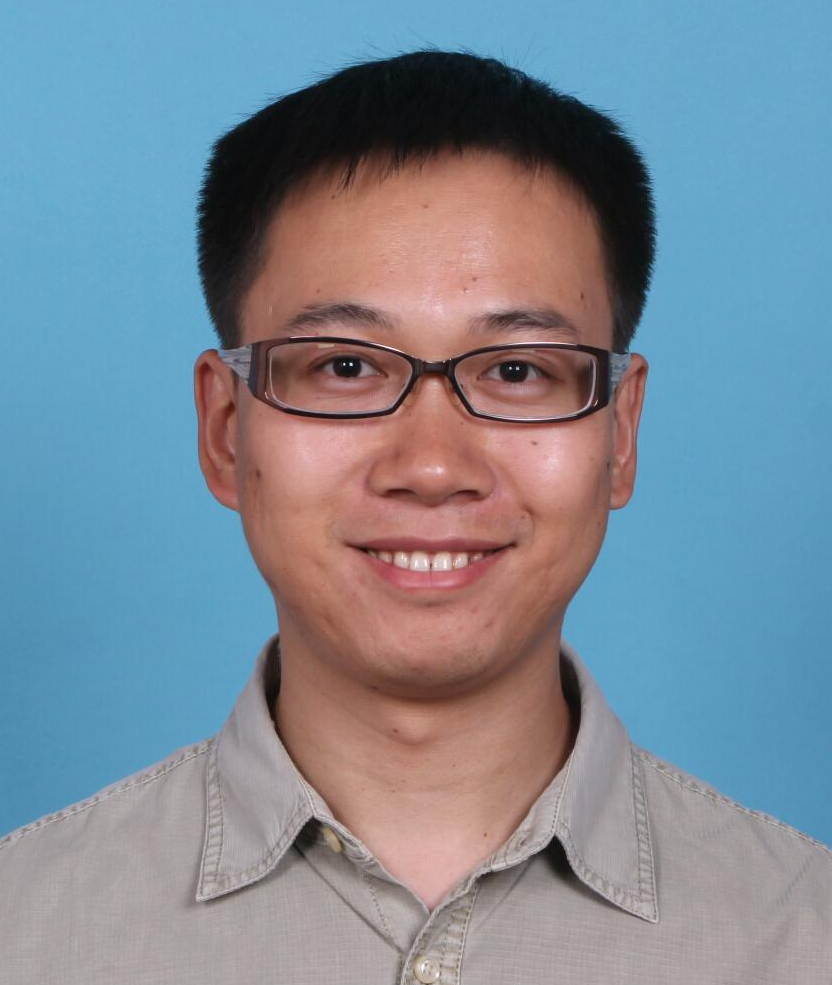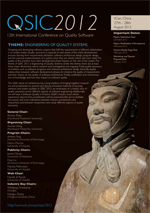Invited Speakers
Keynote Speakers
Mary Jean Harrold, Georgia Institute of Technology (USA)
Quality Assurance for Evolving Systems
 Mary Jean Harrold is a Professor in the School of Computer Science at
Georgia Institute of Technology. She performs research in analysis and
testing of large, evolving software, fault localization and failure
identification using statistical analysis and visualization, and
monitoring deployed software to improve quality. Professor Harrold
received an NSF National Young Investigator Award, and was named an
ACM Fellow and an IEEE Fellow. She serves on the Board of Directors
for the Computing Research Association (CRA) and the editorial board
of JSTVR, and served on the editorial boards of ACM TOSEM and TOPLAS
and IEEE TSE. She served as NSF ADVANCE Professor of Computing, on
the leadership of team of the National Center for Women in Information
Technology (NCWIT), and on the CRA Committee on the Status of Women in
Computing Research (CRA-W). She received the Ph.D. in computer
science from the University of Pittsburgh.
Mary Jean Harrold is a Professor in the School of Computer Science at
Georgia Institute of Technology. She performs research in analysis and
testing of large, evolving software, fault localization and failure
identification using statistical analysis and visualization, and
monitoring deployed software to improve quality. Professor Harrold
received an NSF National Young Investigator Award, and was named an
ACM Fellow and an IEEE Fellow. She serves on the Board of Directors
for the Computing Research Association (CRA) and the editorial board
of JSTVR, and served on the editorial boards of ACM TOSEM and TOPLAS
and IEEE TSE. She served as NSF ADVANCE Professor of Computing, on
the leadership of team of the National Center for Women in Information
Technology (NCWIT), and on the CRA Committee on the Status of Women in
Computing Research (CRA-W). She received the Ph.D. in computer
science from the University of Pittsburgh.
Philippe Kruchten, University of British Columbia (Canada)
Why is software so bad ? (Is it?)
 Philippe Kruchten
is a full professor of software engineering in
the department of electrical and computer engineering of the
University of British Columbia, in Vancouver, Canada. He holds
an NSERC Chair in Design Engineering. He joined UBC in 2004
after a 30+ year career in industry, where he worked mostly in
with large software-intensive systems design, in the domains of
telecommunication, defense, aerospace and transportation. Some
of his experience is embodied in the Rational Unified Process
(RUP) whose development he directed from 1995 till 2003, when
Rational Software was bought by IBM. His current research interests still reside mostly
with software architecture, and in particular architectural decisions and the decision
process, as well as software engineering processes, in particular the application of agile
processes in large and globally distributed teams. He teaches courses in
entrepreneurship, software project management, and design.
He is a senior member of IEEE (Computer Society), an IEEE Certified Software
Development Professional (CSDP), a member of ACM, INCOSE, CEEA, the founder
of Agile Vancouver, and a Professional Engineer in British Columbia. He has a diploma
in mechanical engineering from Ecole Centrale de Lyon, and a doctorate degree in
information systems from Ecole Nationale Supérieure des Télécommunications in Paris.
Philippe Kruchten
is a full professor of software engineering in
the department of electrical and computer engineering of the
University of British Columbia, in Vancouver, Canada. He holds
an NSERC Chair in Design Engineering. He joined UBC in 2004
after a 30+ year career in industry, where he worked mostly in
with large software-intensive systems design, in the domains of
telecommunication, defense, aerospace and transportation. Some
of his experience is embodied in the Rational Unified Process
(RUP) whose development he directed from 1995 till 2003, when
Rational Software was bought by IBM. His current research interests still reside mostly
with software architecture, and in particular architectural decisions and the decision
process, as well as software engineering processes, in particular the application of agile
processes in large and globally distributed teams. He teaches courses in
entrepreneurship, software project management, and design.
He is a senior member of IEEE (Computer Society), an IEEE Certified Software
Development Professional (CSDP), a member of ACM, INCOSE, CEEA, the founder
of Agile Vancouver, and a Professional Engineer in British Columbia. He has a diploma
in mechanical engineering from Ecole Centrale de Lyon, and a doctorate degree in
information systems from Ecole Nationale Supérieure des Télécommunications in Paris.
Industry Invited Speaker
Yiming Cao, Microsoft (China)
A model based approach for network protocol interoperability assurance
Abstract: Microsoft has a long tradition in delivering networked software products, and interoperability of these products with 3rd party software has become more and more a focus in recent years. Defining a network protocol's behavior in a non-ambiguous way, being able to simulate its behavior for better comprehension and easier consistency checking, and being able to conduct testing or runtime verification from the description are important factors for ensuring good interoperability. In this talk, we'll illustrate how such work is done in Microsoft with support of methodologies and tools.
Bio of presenter:  Yiming Cao graduated from Tsinghua University (Beijing, China) and
holds a master degree in Computer Science. He joined Microsoft in 2007
and currently works as a Senior Software Design Engineer Lead. He
leads a team in Beijing working on model-based-testing tools, protocol
modeling languages and runtime monitoring/analysis frameworks. The
effort is a crucial part of Microsoft's interoperability commitment,
and one of the major outcomes is the popular model-based-testing tool
Spec Explorer, which is freely available to the public.
Before joining Microsoft, Yiming worked for IBM on Eclipse based rich
client platforms, and then joined a start-up company working on
on-line media streaming technologies.
Yiming Cao graduated from Tsinghua University (Beijing, China) and
holds a master degree in Computer Science. He joined Microsoft in 2007
and currently works as a Senior Software Design Engineer Lead. He
leads a team in Beijing working on model-based-testing tools, protocol
modeling languages and runtime monitoring/analysis frameworks. The
effort is a crucial part of Microsoft's interoperability commitment,
and one of the major outcomes is the popular model-based-testing tool
Spec Explorer, which is freely available to the public.
Before joining Microsoft, Yiming worked for IBM on Eclipse based rich
client platforms, and then joined a start-up company working on
on-line media streaming technologies.


